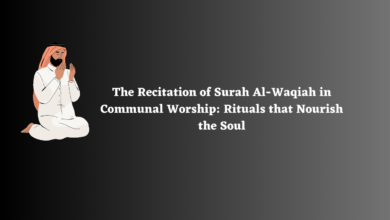Can a Non Muslim Attend a Muslim Funeral? | Embracing Inclusivity Beyond Faith | 2023
Inclusivity and Respect: Attending a Muslim Funeral as a Non-Muslim

Can a Non Muslim Attend a Muslim Funeral?
Yes, in many cases, non-Muslims can attend Muslim funerals. Islam encourages compassion and inclusivity, allowing non-Muslims to show support and respect during times of grief.

- The Meaning of Life in Islam or Other Religions |Article|2023
- Surah Kafirun | Meaning | Importance | Islamic Article | 2023
- Can Christians Say Mashallah? | Controversial Question | 2023
Introduction
Death is a universal aspect of human existence, transcending cultural and religious boundaries. When someone passes away, their loved ones seek comfort and solace through communal mourning rituals, which often include funerals. In Islam, funerals hold profound significance as they symbolize the transition from this world to the next. One question that often arises is whether non-Muslims can attend Muslim funerals, and how to navigate the delicate balance of respecting religious traditions while expressing condolences. This article explores the topic of non-Muslim attendance at Muslim funerals, highlighting the cultural sensitivity and etiquette involved.
Cultural and Religious Diversity
The world is a mosaic of cultures and religions, each with their own distinct practices and beliefs. It’s essential to approach the question of attending a Muslim funeral as a non-Muslim with an understanding of the diversity within the Muslim community itself. Islam is practiced in various ways across the globe, and while some Muslim communities might be more open to non-Muslim participation in their funeral rituals, others might prefer to keep the ceremonies within the faith.
Understanding Muslim Funeral Practices
Muslim funeral practices are deeply rooted in Islamic teachings and traditions. The main elements of a Muslim funeral include the washing and shrouding of the deceased, a communal prayer service (Salat al-Janazah), and burial. These rituals are typically conducted in accordance with Islamic law (Sharia). The question of whether a non-Muslim can attend a Muslim funeral often depends on the interpretation of these practices by the specific Muslim community and the family of the deceased.
Cultural Sensitivity
Cultural sensitivity is of paramount importance when considering attending a Muslim funeral as a non-Muslim. The grieving process is already emotionally charged, and ensuring that your presence is respectful and comforting should be the priority. If you are uncertain about whether your presence would be appropriate, it’s advisable to consult with a close friend or family member of the deceased before making a decision.
Seek Permission
If you are contemplating attending a Muslim funeral as a non-Muslim, it’s courteous to seek permission from the family or community organizers. Express your condolences and explain your intention to pay your respects. Respect their decision if they feel that the event should be restricted to Muslim attendees only.
Dress Modestly
If you receive an invitation to attend a Muslim funeral, it’s important to dress modestly and respectfully. In Islam, modest attire is valued, and this extends to funeral ceremonies. While you might not be required to wear traditional Muslim clothing, avoiding overly casual or revealing attire is a sign of respect for the occasion and the faith.
Observe from a Distance
In some cases, even if you are permitted to attend the funeral, it might be appropriate to observe from a distance. This acknowledges the sacredness of the event while allowing you to pay your respects without intruding on the intimate moments shared by the grieving family.
Participate Mindfully
If you’re invited to participate in the funeral rituals, approach them with an open heart and mind. Even if you’re not familiar with Islamic practices, follow the lead of those around you. Stand respectfully during the prayer service and remain quiet during moments of reflection and remembrance.
Offer Condolences
Whether you attend the funeral or not, expressing your condolences is a thoughtful gesture. A simple message or a handwritten note can go a long way in conveying your sympathy and support to the grieving family.
Conclusion
Attending a Muslim funeral as a non-Muslim requires a delicate balance between cultural sensitivity and respect for religious practices. While some Muslim communities might welcome non-Muslim attendees, others might prefer to keep the event within their faith. Understanding the diversity within the Muslim community, seeking permission, dressing modestly, and observing from a respectful distance are all key aspects of navigating this situation. Ultimately, the goal is to provide comfort and support to the grieving family while honoring their cultural and religious traditions.
Can a non Muslim attend a Muslim funeral?
Yes, in many cases, non-Muslims can attend Muslim funerals. Islam encourages compassion and inclusivity, allowing non-Muslims to show support and respect during times of grief.
Are there any restrictions for non-Muslim attendees?
While there are no strict restrictions, it’s important to follow certain etiquette. Dress modestly and respectfully, be attentive to the proceedings, and avoid engaging in activities that may be considered inappropriate in a solemn setting.
How should non-Muslims behave at a Muslim funeral?
Non-Muslim attendees should maintain a respectful demeanor. It’s advisable to stand when others stand, remain quiet during prayers, and avoid any behavior that might disrupt the funeral proceedings.
Can non-Muslims participate in funeral rituals?
Participation might vary depending on cultural and regional factors. In some cases, non-Muslims might be invited to observe certain rituals, while in others, they might simply stand in solidarity during the event.
Should non-Muslim attendees bring gifts or flowers?
While flowers and gifts might be common in some cultures, it’s advisable to check with the family or organizers beforehand. In Islam, the best way to show support is through your presence and respectful behavior.





